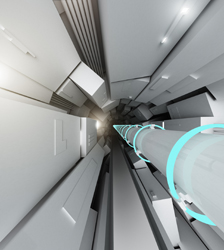Accelerator research goes pan-European
Science, particularly high energy physics, has come a long way due to the power of particle accelerators. Facilities such as the European Organization for Nuclear Research (CERN) and the German Electron Synchroton (DESY) have been at the forefront of accelerator research, opening doors to many exciting research finds. The EU-funded project 'Coordinated accelerator research in Europe' (CARE) established a more organised and integrated European network in the field, bringing notable European infrastructure laboratories and their user communities closer together. The project successfully upgraded existing infrastructures, facilitated access to accelerators and enhanced their reliability. Thanks to closer interaction among scientists and experts, it also exploited cutting-edge technologies through improved research and development, testing of components and generation of novel concepts. Moreover, CARE articulated priorities for the future such as neutrino (muon) beams and high-energy/high-intensity proton accelerators, as well as an electron linear accelerator and electron linear collider. This has helped achieve the vision of a pan-European distributed technological platform for accelerator research, supported by three networking activities and four research activities. The networking activities produced comparative studies, prioritised research programmes and developed technical roadmaps for infrastructure evolution, strengthening European knowledge in the field immensely. The joint projects, on the other hand, worked on developing superconducting cavity technology and launched a programme to improve photo-injector technology. Overall, CARE demonstrated that the synergy of all facilities produces outstanding research results far beyond what one facility alone can achieve. It helped academic institutions across Europe develop their research capabilities and enabled the accelerator research sector to innovate in numerous ways.

